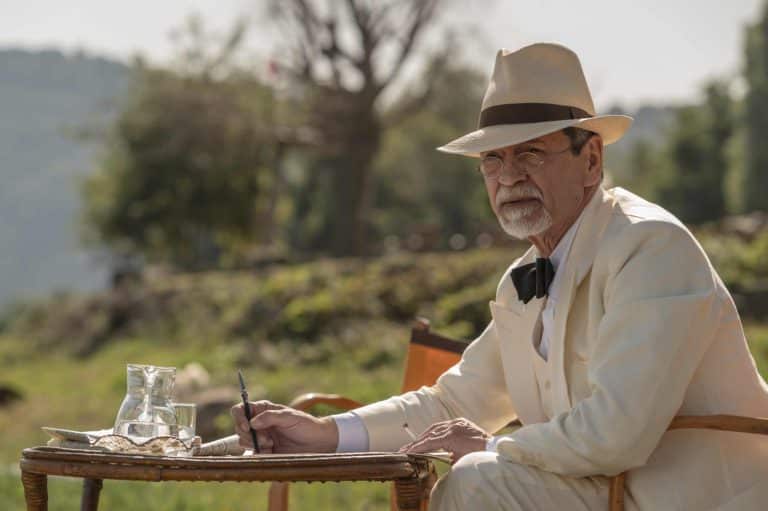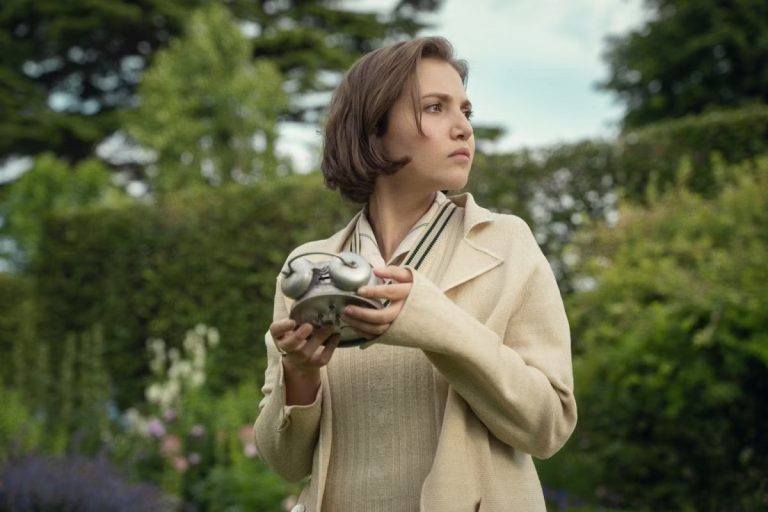Romantic comedy can be such a delightful genre when it is done right. The innumerable classic rom-coms that make your heart swoon or race with an abundance of entertainment, funny predicaments, and refreshing characters are a testament to that. However, Rom-coms are few and far between nowadays and turn out mostly to be a hit-and-miss affair that rarely has a funny or original, or memorable narrative/characters. When they turn out to be unremarkable and underwhelming, we go back to the nostalgic past of best rom-coms and wish ourselves a better time.
And another one bites the dust. Dear me. Netflix has managed to churn out yet another romantic comedy that follows the generic narrative of a young and romantically unlucky woman desperate to find her true love. Writer-director Mark Steven Johnson’s Love in the Villa, starring Kat Graham (The Vampire Diaries) and Tom Hopper (The Umbrella Academy), has all the classic ingredients of a romantic comedy: a man and woman meet serendipitously, their mutual hatred for each other prolongs their evident spark and chemistry, their despise is soon forgotten when they find middle ground and have a heart-to-heart, and finally surmounting all obstacles, they are finally united in a passionate embrace. The ugly formula of clichés and lackadaisical and predictable situations has undoubtedly become the reason for the film’s downfall.
Love in the Villa (2022) follows the story of elementary school teacher Julie (Kat Graham), an overachiever and a perfectionist, and a hopeless romantic at heart obsessed with Romeo and Juliet. She plans meticulously for the trip of a lifetime with her boyfriend of four years, Brandon (Raymond Ablack), to a romantic villa in picturesque Verona, including everything from reservations to themed tours, while staying in La Villa Romantica, that faces the balcony that inspired the famous scene in Shakespeare’s tragic play. She even goes to the extent of laminating her itinerary and even allocates a sliver of vacation time for “spontaneity.” But when Brandon gets cold feet and breaks up with her unceremoniously, she ventures on a solo trip rather than brood and mope in Minneapolis.
Julie’s dream of a lovely getaway to recharge herself is thwarted when she is set aback by the most uncertain circumstances. She endures a series of misfortunes – a delayed flight, turbulence, screaming babies, lost luggage, and a reckless cab driver. And the worst of them all is when she discovers that her private Villa has been accidentally double-booked by a tall, “obnoxious yet very fit” Brit, Charlie (Tom Hopper), a wine importer, who comes to Verona each year for his job seeking out vintners to work with during Vinitaly, a wine festival. Thus begins the some-parts-hilarious yet some-parts-silly war over the Villa, where both try to oust each other. A stubborn Julia and a cynical Charlie indulges in hijinks – he invades her diary; she exploits his allergies to cats; he has her missing luggage donated to charity; she calls the cops on him, and they even end up in a food fight that breaks the window and summons the police. All of a sudden, the ice breaks, and the two become amicable and eventually share a bond between them as she shows him the city in a new light.
Love in the Villa lacks originality and freshness in its wafer-thin plot, depthless characters, and cursory and foreseen turn of events. It utilizes a fair share of familiar and overused tropes – two strangers stuck together forcing them to spend time together, the initial clash of personalities during the “meet-cute”, warring enemies turning into lovers after a bout of animosity, overcoming their differences or misconceptions, and finally a fairy-tale-style happy ending. It is also guilty of reusing stereotypical cliches of setting the story in the corniest locale that oozes cheesiness, rejected and lovesick heroine, the strangely charming and cynical Brit, the heroine’s gay and sassy friend who offers romantic advice, going on a vacation as a cure-all for the breakup and finding love (and that too in a week!) and what not.
The lack of good writing, thinly sketched caricatures, and the formulaic narrative that never meets the bar of neither being convincing nor entertaining turns out to be the film’s undoing. Even though the film falls into the subgenre of rom-com, it doesn’t even tickle your feet, let alone make you clutch your stomach and roll on the floor, except during the modestly amusing harmless shenanigans of the two leads. The shallow characterization and the paucity in the chemistry between the characters make it even more mediocre, and the conflict barely conspicuous. The unnecessary dragging out of the inevitable made the film closer to two hours, which is excessively long for a rom-com that offers nothing more than some delightful performances. Julie’s spitfire character is invigorating and strong as she replaces the old stereotype of an ambitious girl boss as she has embraced her career and is content with teaching third-grade students and motivating them to fall in love with books.
Love in the Villa is a generic and easily forgettable film that allures you with a whiff of romance and comedy now and then but becomes dull and insipid after a point of time. The sights and sound of the breezy and pleasant Italian love corner capture the touristy universe in a microcosm and serves as nothing but a marketing flyer for Verona. As anticipated, the final nail in the coffin to this flat endeavor is when Charlie calls out to Julie from the balcony giving a finale to the fairy tale. Towards the end, the cab driver asks Julie, “Was Verona everything you hoped for?” And she nods affirmatively. And if you ask me, “Was Love in the Villa everything you hoped for?” I would scream a resounding no at the top of my lungs. You can, wholeheartedly, skip watching this unabashedly sappy movie unless you want to mindlessly waste time on a guilty pleasure you have already watched infinite times.

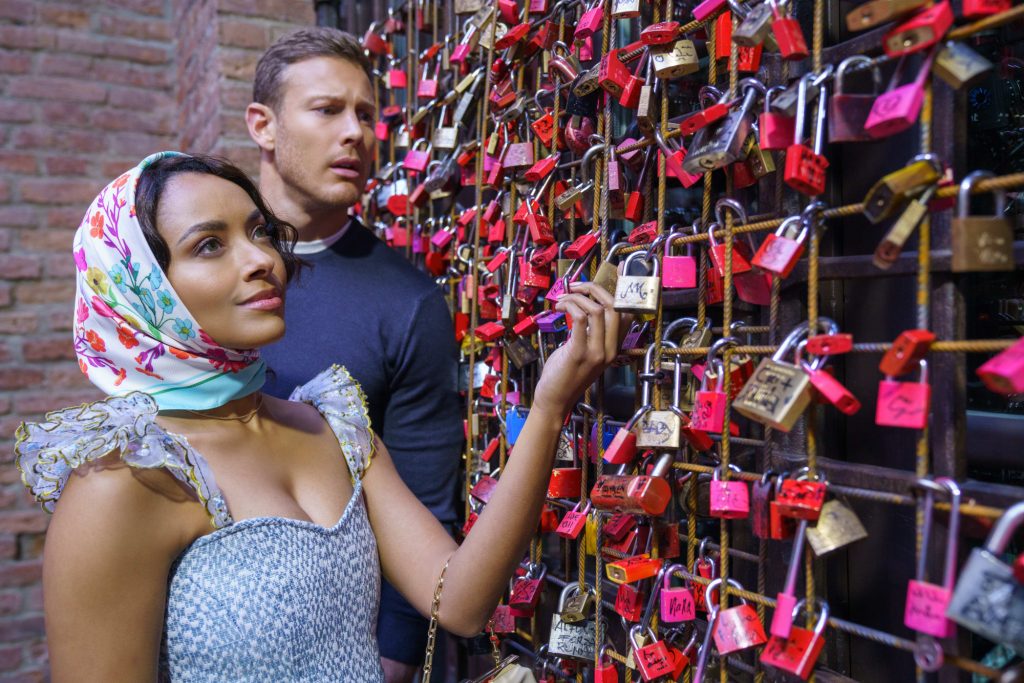


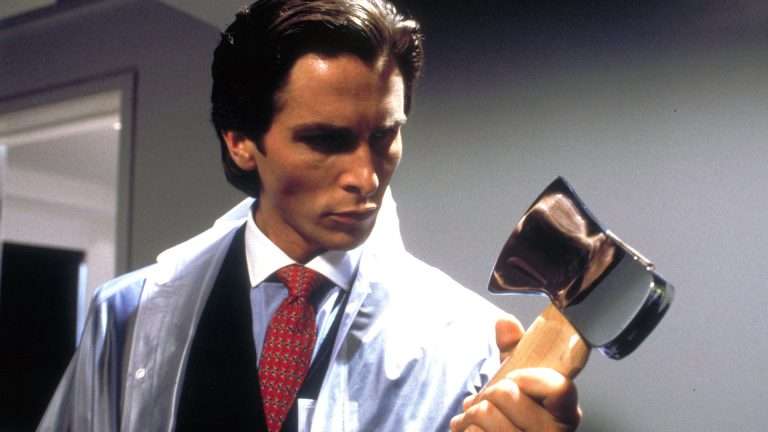
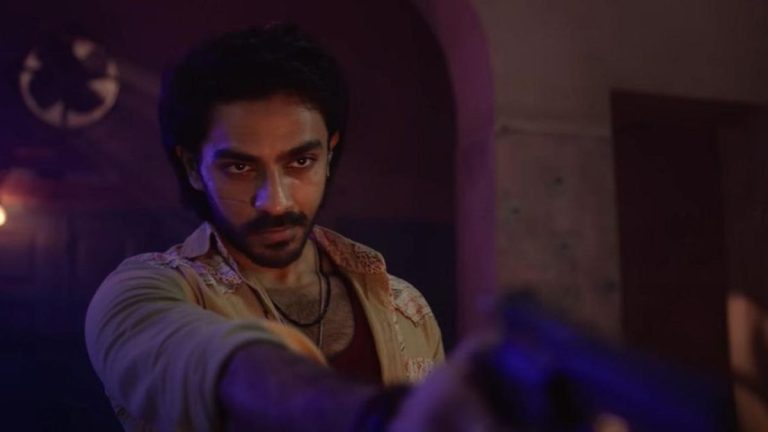
![Choked [2020] Netflix Review – A tale of a crumbling marriage crushed by a socio-political metaphor](https://79468c92.delivery.rocketcdn.me/wp-content/uploads/2020/06/Choked-highonfilms-768x432.jpg)
